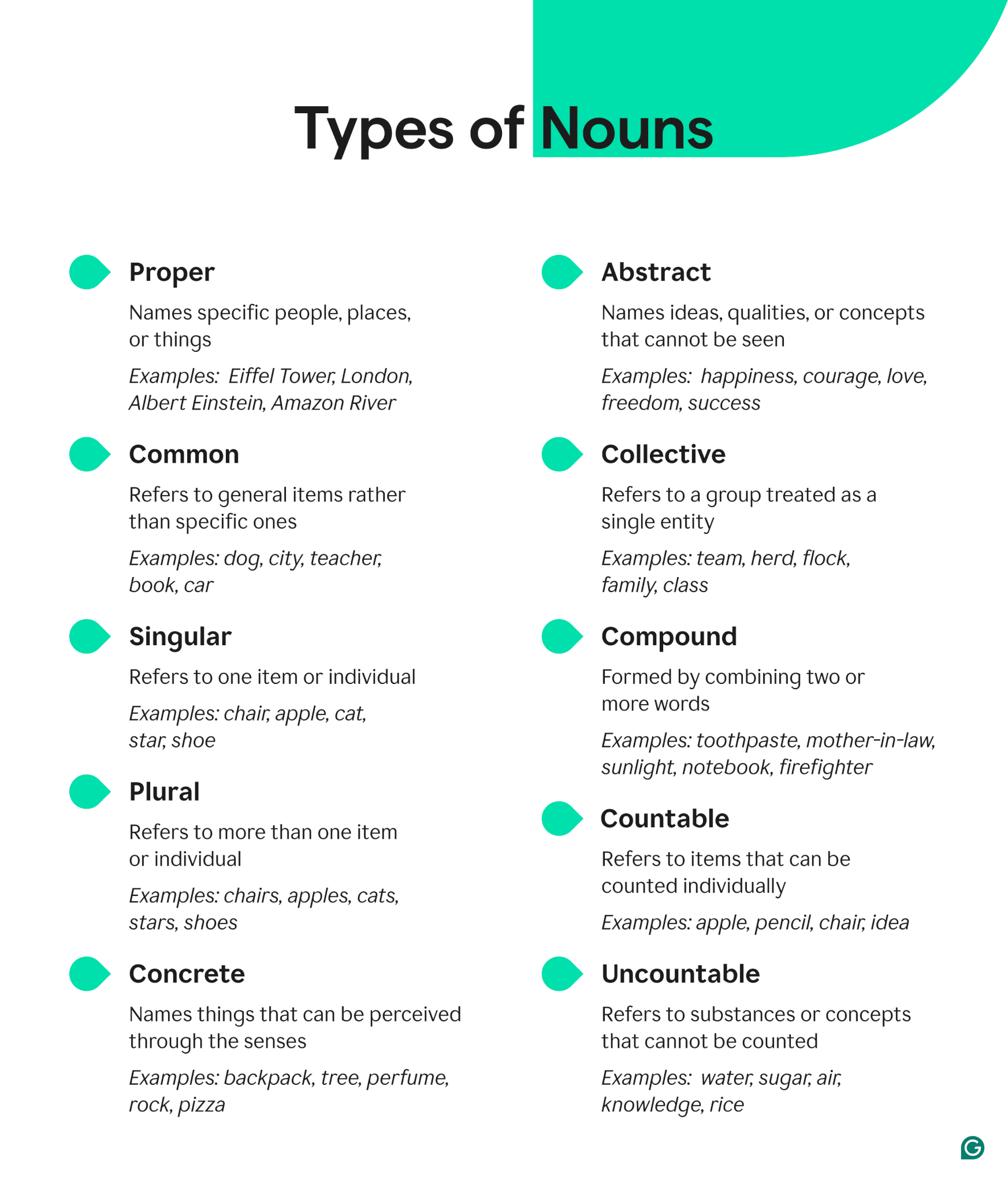Nouns are an essential part of language, as they are used to name people, places, things, or ideas. They help us communicate effectively and are found in every sentence. There are different types of nouns, including common nouns, proper nouns, abstract nouns, and more. In this article, we will explore an example of a noun and its significance.
One common noun that we encounter daily is “car.” A car is a mode of transportation that many people use to get from one place to another. It is a tangible object that can be seen, touched, and driven. The word “car” is a common noun because it refers to any vehicle of this type, not a specific one.
The Noun “Friend”
Another example of a noun is “friend.” A friend is a person who you have a close relationship with, someone you can trust and confide in. Friends provide support, companionship, and laughter in our lives. The word “friend” is a common noun because it can refer to any person who fits this description, not a specific individual.
Furthermore, nouns play a crucial role in sentence structure. They can act as the subject, object, or complement of a sentence. In the sentence, “My friend gave me a ride to the airport,” the noun “friend” is the subject performing the action of giving. Without nouns, sentences would lack clarity and coherence.
In addition to common nouns like “friend” and “car,” there are also proper nouns that refer to specific names of people, places, or things. For example, “New York City” is a proper noun because it names a specific location. Proper nouns are always capitalized to distinguish them from common nouns.
In conclusion, nouns are essential building blocks of language that help us communicate effectively. They name the people, places, things, and ideas that make up our world. By understanding and using nouns correctly, we can express ourselves clearly and convey our thoughts and feelings to others.
